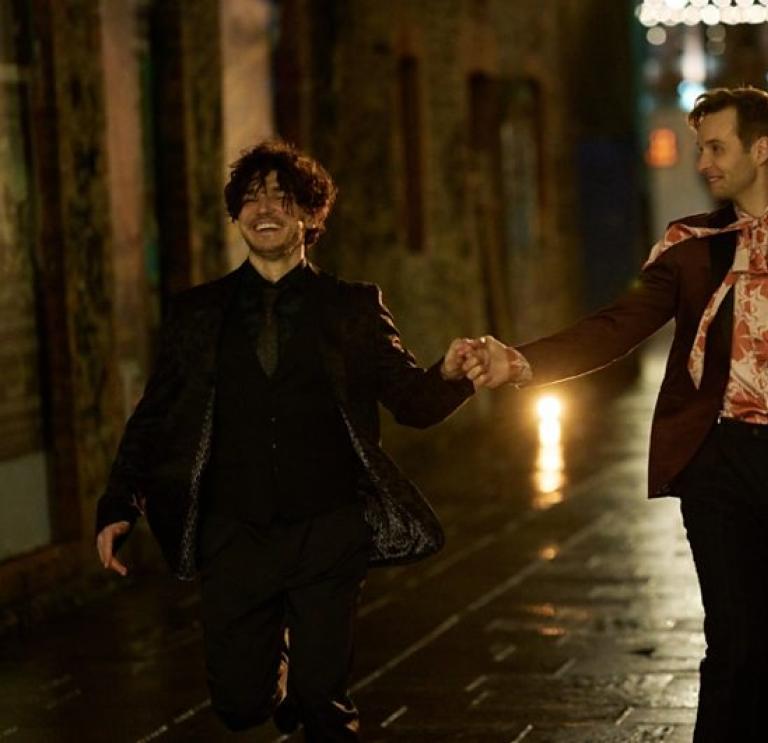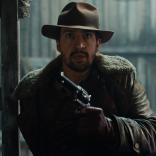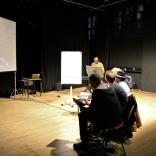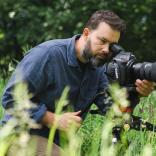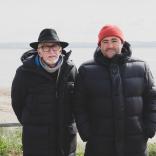My name is Adam, and I was a producer on Lost Boys & Fairies.
The job of a producer is all about momentum. Productions need somebody to drive them forward, and I feel that’s the most important part of my role. I’m a facilitator; I help bring the director and writer's vision to the screen. Helping to choose the soundtrack is a part of that. In the case of Lost Boys & Fairies, there were three different musical elements: commercial tracks, performances, and the score.
Alongside the specific tracks Daf [the writer] had scripted, the edit assistants and I pulled together a playlist of songs that we thought could be suitable for a gay club like Neverland. We tried to have as many queer artists as we could.


We then supplied that playlist to the editor and director. They figured out what songs they liked for certain scenes: sometimes it's the tempo of the track, or sometimes it’s because the vocal might fit the mood of that moment. If we felt there were too many of the same artist or it was going be tricky to clear, we’d rethink. By clearing we mean engaging with a music supervisor; they do all the legal work to make sure there is a deal to be done, and that the artists are getting paid and are contracted for their songs to appear in the episodes.
If we needed to switch any, we’d find other songs that fit the beat, the dancing in the scene and the music from that period. We then sent two or three options for each one to Daf and James, the director, for sign-off. It’s a collaborative experience.
Daf was not only heavily involved in the music choices at the script stage, but he was also the musical director. He even writes musically; there's a lyricism and tempo to his scenes. He’s incredible in that respect.
Lost Boys & Fairies on Spotify
The show itself is a rollercoaster of emotions, and the music reflects that in many ways. For the performances, expect emotional songs that either make you smile or cry; there are some tearjerkers. For the score, we have a composer called Peter Gregson. His music elevates the scenes and makes them hit harder. And then there are party hits for the club scenes.
For the performance tracks, we kept it very local. We used Louise Ryan as our vocal coach to get the actors ready – she’s worked with the likes of Charlotte Church and Luke Evans. And we recorded all the tracks at Tŷ Cerdd, based in the Wales Millennium Centre.
We wanted to have as many independent Welsh artists as the commercial tracks or incidental commercial tracks as possible. I have playlists that I've put together over the last three or four years where I’ve pulled songs from the Adam Walton show on BBC Wales Introducing, Horizons and Beacons Forté Project. Every year, I start a new playlist , and that’s predominantly where those songs were found.
If we don't champion our artists locally, then who will? Having a platform that is as big as a BBC drama, or any drama, allows people to find that music. It’s important to be grandstanding and promoting Welsh artists wherever we can.
Adam KnopfIf we don't champion our artists locally, then who will? It’s important to be grandstanding and promoting Welsh artists wherever we can.

If you’re an artist who wants to get your songs on television, it’s about getting to know music supervisors. We worked with Tin Drum, but locally we have Skip Curtis. He works on productions to help clear music and tries his best to get Welsh artists included.
Artists also need to make sure their songs are registered on PRS because it’s quite hard to get the rights sorted in time. And invite producers and directors to your gigs and let them know that you are part of the scene.
To be a producer, my advice is to build a family of people that you'd like to work with keep learning in your day-to-day work. Also, pick a job role that you enjoy, as you will excel and progress. But as you do that, just be nice to everyone because people will remember that.
Lost Boys & Fairies has been the best show I’ve done. Every time I read the scripts, I cry. Every time I watch the episodes, I cry and laugh and fall in love with the characters. It’s particularly special because it's set in Cardiff, which is my home. And it's queer and unafraid of going to all those dark places that you don't expect to go to. It's a love letter to Cardiff and it's a love letter to Wales, and it will make us all very proud.
Updates from Adam and Lost Boys:
- In 2025, Lost Boys & Fairies debuted on BritBox, expanding its reach to international audiences.
- The series was nominated for a BAFTA TV Award in the Limited Drama category, highlighting its impact within the television industry.
- Adam has continued to advocate for reinvesting production revenues into training programs for the Welsh TV and film industry, sharing insights about taking on apprentices with Sgil Cymru.
To find out more about Lost Boys & Fairies, read our article on how the Wales-based locations, crew and trainees helped to bring the production to life.
